- How do I prevent rusting of top rails, bottom rims and walls of an bove ground saltwater pool?
Now here’s your hosts – Matt and Rob.
Poolside Chat Episode #10 Video
Watch the video it’s easier than reading ![]()
“O frabjous day! Callooh! Callay!”
Is there any way to keep bolts, screws, and pool walls from forming rust on an above ground pool that has a salt chlorine generator
– Rusty
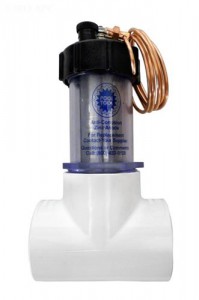
Rusty, there is. I’ll briefly explain why this rust happens, and then we can dig into the details. When you have various metals in a saltwater pool, it creates a battery effect. There’s current between these metals that leeches out to look for the weakest metal in the water to oxidize. So we have what they call a sacrificial swimming pool zinc anode; and, basically you drop this in your skimmer or install them in line with your plumbing. The zinc anode’s weaker metal acts as a decoy, attracting the corroding properties of the water to keep your stainless steel railing and ladders safe.
Think of your pool as a tree and with any tree in the wild, the lowest hanging fruit will be the first to be gobbled up. That’s basically what zinc is. It’s going to be that low hanging fruit keeping away those nasty little animals A.K.A. rust from gobbling up your expensive stainless steel rail. If you salt chlorine generator, and you didn’t install marine grade stainless steel, you put in a zinc anode. Installing a Zinc Anode is a lot simpler than replacing a whole deck’s worth of railing and ladders.
Also, these anodes are quickly replaced when the zinc brick is kaput. You either bolt them on the side of the pool or it’s basically like a saddle that you put on top of the pipe, and you just pull that out to replace and put a new one back in.
And thank you for joining us. If you have any more questions about a swimming pool zinc anode, you can always contact us at 877-372-6038 or visit us online at inyopools.com. You can e-mail us at upload@inyopools.com, also subscribe to this video and to our newsletter where you can also get a free pool maintenance guide, 128 pages that’s what they tell me.
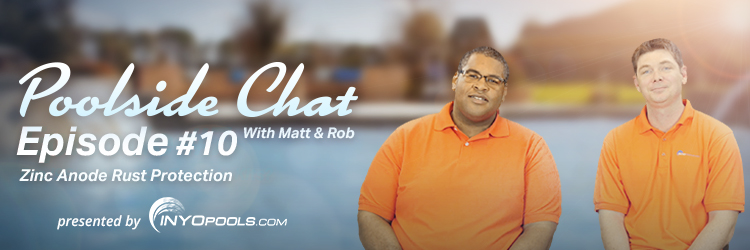
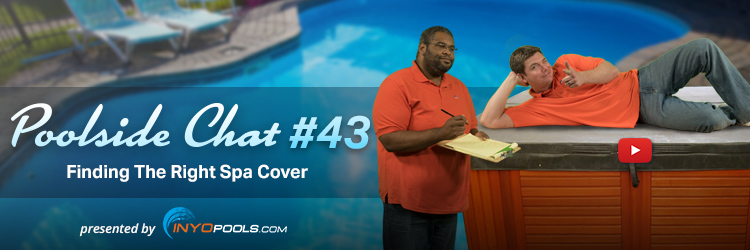
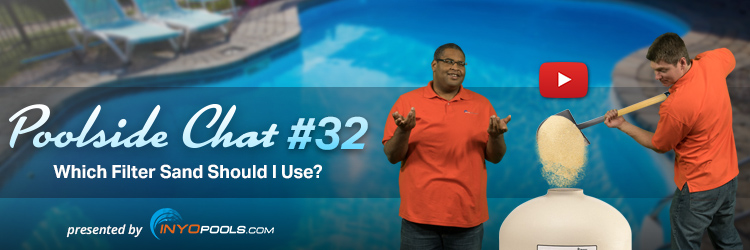
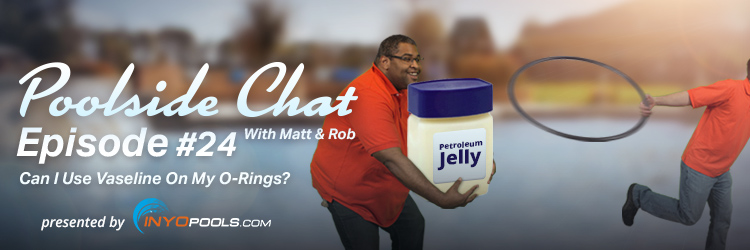
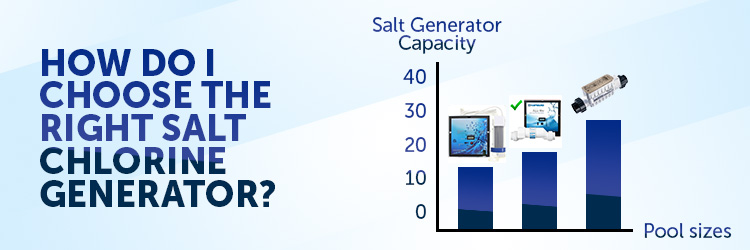






Do I need a shutoff valve before I change an inline zinc tab. Wouldn’t water pressure force a geyser effect when I attempt to access the inline since tab?
If the inline zinc anode is on an above ground pool, with the equipment stored below the waterline, you would need a shutoff valve. If this is on an inground pool, open the filter’s air release valve to purge the system of water before opening the anode container. If the filter doesn’t have an air release, opening the pump lid has the same effect.
Having problems with the top rails of our 28′ above ground pool rusting. How can I get them repainted, replaced, other recommendations? New seem outrageous at $70 apiece.
Replaced – If your have the part number you could price shop on the net. Or take it to the metal shop to have them deplicate them.
Repaired – depends on the material, you can take it to a metal shop for steels rails if they are bent. Resin rails are pretty much done for, if they are cracked.
Thanks for finally talking about >Poolside Chat Episode #10 – Zinc Anode Rust Protection <Loved it!
I have read so many posts concerning the this topic, this piece of writing is really a nice article, keep it up.
Excellent! Nice work fellas!
Thank you for watching, Jason.